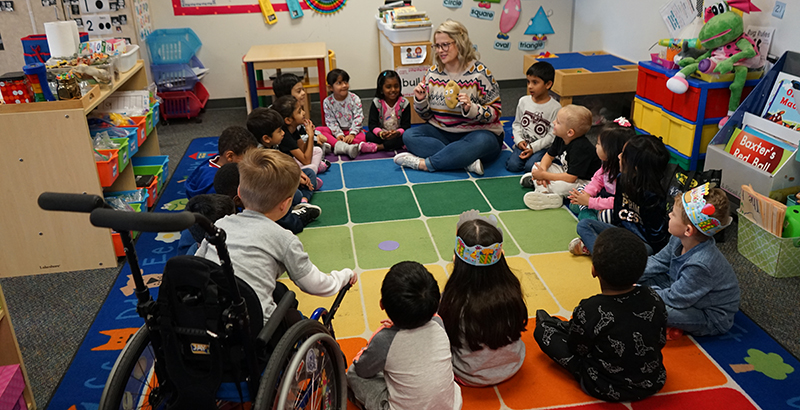
When looking at the research around pre-k we are given a certain narrative, one that I admit seems very appealing. The idea that all children should have access to high quality education beginning at the age of 4 sounds like the kind of government intervention that anyone could get behind. After all, with schooling only becoming more intensive and competitive, shouldn’t we begin preparing children as soon as possible how to socialize in a classroom environment? The data seems to support the benefit of pre-k programs with a rise in test scores and a drop in truancy and disciplinary actions. The question then becomes, why wouldn’t we want to support these programs? Why would we doubt the large data sets advocating for a public program that also receives popular support?
Pushing back on these assumptions is an article by the Manhattan Institute that seeks to highlight the drawbacks of universal pre-k. The programs are found to benefit only the deeply disadvantaged, a group that is at times overrepresented in these studies. With children from other backgrounds there is a negligible effect on the much touted testing and often the benefits recede quickly and children will often regress to mean. When scrutinizing the research it was found that some of the benefits were not broadly repeatable by current pre-k programs, meaning that only the highest quality programs produced long term effects, and they were often coupled with early intervention programs as well. With these holes becoming apparent we are left to wonder if pre-k is the easy win we assumed it to be or does there need to be further investigation as to how we invest in our children? One possible example put forward by the study asks what if we invested the billions ear marked for pre-k directly into families? Possible further expansions to the child tax credit or other assistance programs targeting families in need, which I would argue are most families.
The other area I often wonder about is the effect on families that pre-k programs have. There is not a great deal of research on the extending implications of child care and education, but one study in Washington D.C. gives us some insight and poses some interesting questions. The study showed that the maternal labor force increased by 12% across low and high income levels, middle income had negligible change. These results were also touted as an enormous boon for working class families and showed that not only did pre-k benefit the child but could also uplift the caregiver as well. While at first I found myself nodding in agreement I wondered again about what the Manhattan Institute’s article had said about expanding child care credit. Do these results devalue the role of parents as caregivers and espouse that to be of value you must be employed? This perpetuates the devaluation of caregiving that is deeply entrenched in our capitalist society, the idea that the only real work is that which brings in the most money. These questions are not meant to be a final judgement on pre-k, but to merely open ourselves up to questioning to what ends do these programs serve?

